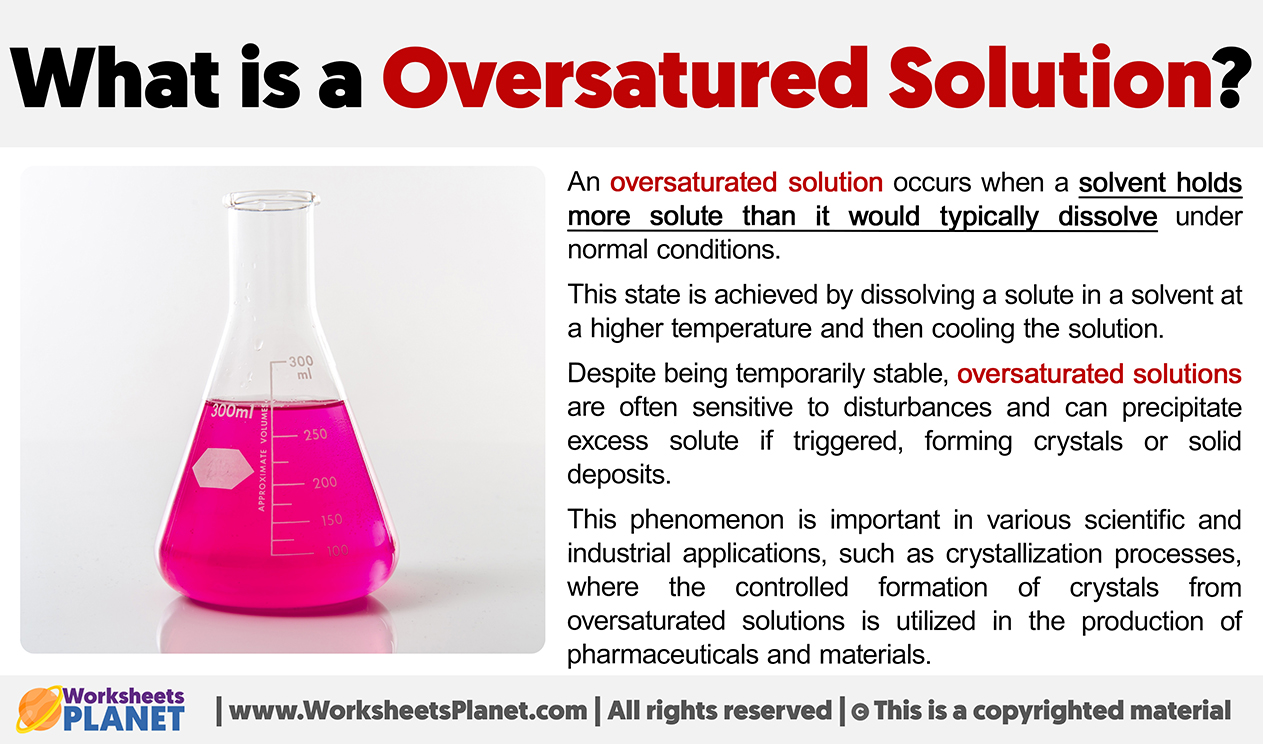An oversaturated solution occurs when a solvent holds more solute than it would typically dissolve under normal conditions.
This state is achieved by dissolving a solute in a solvent at a higher temperature and then cooling the solution.
Despite being temporarily stable, oversaturated solutions are often sensitive to disturbances and can precipitate excess solute if triggered, forming crystals or solid deposits.
This phenomenon is important in various scientific and industrial applications, such as crystallization processes, where the controlled formation of crystals from oversaturated solutions is utilized in the production of pharmaceuticals and materials.


